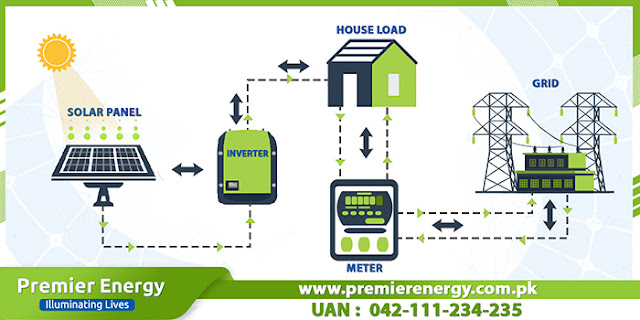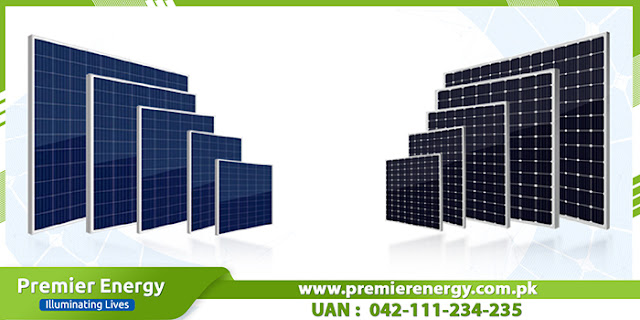What is better with a Solar System; Batteries or Net Metering?
Possibly the most intriguing motivation for going solar is net metering. Every solar system usually produces extra electricity than is required by the consumers. This abundant energy is shipped off to the utility grid and used to power different homes or organizations. As of late, more property holders have been adding solar batteries with solar panels. These batteries are intended to store the surplus energy that the solar plates produce. This accumulated energy is then used when the solar panels are not delivering power, as in the evening time or during storms. In this article, we will talk about Net Metering and How it Works in Pakistan. We will also discuss solar batteries, their operations and which will be more beneficial for you.
Net Metering
Net
metering in Pakistan is
a mechanism that allows the consumers to transfer extra electricity produced by
their system to the national utility grid. A bi-directional electric meter is
integrated with the solar panel system for net metering. The solar panels
should be connected with a three-phase power meter to infuse and balance the
excessive energy to the grid network. You get credits against the units of power
you offer to the public grid and you can use the credits to get free electricity
units. Solar energy systems regularly hit the highest power production capacity
in the early evening, when most residents aren't home using power. Conversely,
home power use is commonly more in the mornings and nights.
With net metering, abundant power is taken care of into your electric utility's matrix when your solar power system is creating an excess. At the point when this occurs, your meter runs backward. When your system isn't creating sufficient power, you can draw it from your utility. Similarly, as before you went sun oriented. This "back and forth" between your system and the grid guarantees that your surplus production will in any case be utilized, and your shortages will be met. With net metering, the abundance of power that your home produces covers the occasions when you don't generate enough.
When your system produces more power than you use throughout
the month, your service bill will get a credit dependent on the net number of
kilowatt-hours you transferred to the utility network. On the off chance that you
produce less power than you use in a given month, you get electricity from your
utility to compensate for any shortfall.
Solar Battery and its
Operation
A Solar Battery is
a device that stores energy produced from your panels and allows you to use the
electricity in the future, for example, at night when your solar panels stop
delivering energy. The higher your battery's capacity, the more power it can
store.
At the point when you introduce a solar battery as a
component of your solar power system, you can store excess solar power at your
home as opposed to sending it back to the utility network. If your panels
generate more power than you need, the abundant energy goes towards charging
the battery. Afterward, when your solar panels aren't delivering power, you can
draw down the electricity you deposited in your battery for night use. You can
also send electricity to the grid when your battery is completely electrified,
and you'll possibly draw power from the utility when your battery is
exhausted. What this implies in practical terms is that homes with solar
can store extra solar energy to use later when the sun isn't shining. As a
little something extra, since solar batteries store energy at your home, they
additionally offer transient backup power if there's a blackout in your general
vicinity.
Which is Better?
Both net metering and solar batteries have their pros and cons, which one cannot compare because they are vastly diverse from each other. Net metering allows you to share excess electricity with the utility grid for credit, while the batteries let you store the electricity and use it later. The mode of operation and the system with which they are utilized are different. Net metering works with an On-grid System while the batteries are attached in an Off-grid System . You have to choose one depending upon your preference. Keep in mind that both mechanisms will help you save money. Net metering will help you save on electricity bills through credits, while the batteries will let you save money through less dependency on grid electricity. The primary difference comes when you have no grid supply, as in the case of a blackout. In such scenarios, battery backup comes in handier because you can utilize it even when the grid power is not available. If you want to enjoy the benefits of both net metering and battery backup, the most viable approach is to get a hybrid solar system. You can connect a Hybrid Solar Energy System to the utility grid for net metering, and it also supports power storage and backup through solar batteries. Hybrid is also the latest solar system in the market, and it will benefit you more than the other two systems in the longer run.




Comments
Post a Comment